FORWARD OPERATING BASE MAREZ, Iraq - Sergeant Mark Wheeler, Company B, 26th Brigade Support Battalion, 2nd Heavy Brigade Combat Team, 3rd Infantry Division, takes a moment to look over his work and to run his hand over the rough and dirty surface of the Russian T-55 tank sitting in his maintenance bay.
He doesn't see the rust or dirt that makes his job seem impossible. In three months, he hopes to have this tank running, so it can be presented to the Iraqi Army. Fixing this broken tank, which was sentenced to a junkyard and making it run before presenting it to the Iraqi Security Forces his unit is partnered with, is a project being chaired by the Spartan Brigade.
"The engine is in excellent shape; the transmission is in excellent shape," Sgt. Wheeler said. "I opened the covers on the engine. I've seen race car engines that look worse than that. It's beautiful. It looks like they put 500 hours on it and parked it."
Progress on the restoration is going slow, but in the end, according to Sgt. Wheeler, the finished product will be something everyone can be proud of.
"Progress is a little slower than where I want it to be, but we're making headway," Sgt. Wheeler said. "There are things we're doing on this that normally we wouldn't have to do or go as far, but I don't turn out anything that's not quality.
"My plan is to have the engine running in one month and fully mission capable in three months. The rifling for the gun is perfect and can be functional in one hour. The breach is a little rusty but can be cleaned up. Once it's up and running, my first drive will be to take it to the chow hall where everyone can see it."
Soldiers curiosity is sparked when they pass by the maintenance bay and see the old tank parked inside. So they stop to check its progress. They ask Sgt. Wheeler where he will get the parts needed to finish the project.
"We're trying to take this tank and not order anything other than expendable items like hoses and bolts," Sgt. Wheeler answers. "We're trying to take the tanks on hand and use parts from them to make it functional. What we can't come up with, we'll fabricate."
According to Lt. Col. James Kazmierczak, 26th BSB commander, his Soldiers from Maintenance Company B take the tank restoration personally.
"The Soldiers look on it as a personal challenge," Lt. Col. Kazmierczak said. "They want to say, 'Here's what it looked like before, and here's what it looks like now.'"
Progress on the project is done a little at a time, as the mechanics use what time they have available when they are not working on other vehicles needing repairs in the shop.
Working on the tank gives the mechanics a chance to gain valuable experience in learning how to fix different engine types, and it is one way to relieve stress.
"The Soldiers want to come and help out," Sgt. Wheeler said. "Whoever is stressed can come and work on the tank and get unstressed. It's kind of like the mental health stress dog."
For Colonel Charles E. A. Sexton, 2nd HBCT commander, having his mechanics work on restoring run-down vehicles not only improves their ability to work on different engines but bridges a gap for the Iraqi Army.
"Giving this tank to the Iraqis shows them what people are capable of if they apply themselves," Col. Sexton said. "It bridges a gap between the U.S. and Iraqi Security Forces and illustrates that hard work and desire can build something to be proud of."
Sergeant Wheeler said the tank being restored is a Russian T-55 or Chinese T-69 sold to the Iraqi Army as far as he can tell.
The difference between the two is which modifications were added in the form of better turret shape, improved chemical protection, improved fire-control equipment or night-vision equipment.
He said he hopes once the Iraqis are given the tank, they will continue to provide maintenance to keep it running.
For now though, he and the other Soldiers in his maintenance crew are having a blast restoring the tank to its original condition. After all, he says, not everyone has the chance to restore an Iraqi tank.
When asked how he can possibly restore an Iraqi tank rusting in a junkyard for so long to serve as a gift to the Iraqis, Sgt. Wheeler smiles and proudly affirms his battalion motto - "No challenge too great."
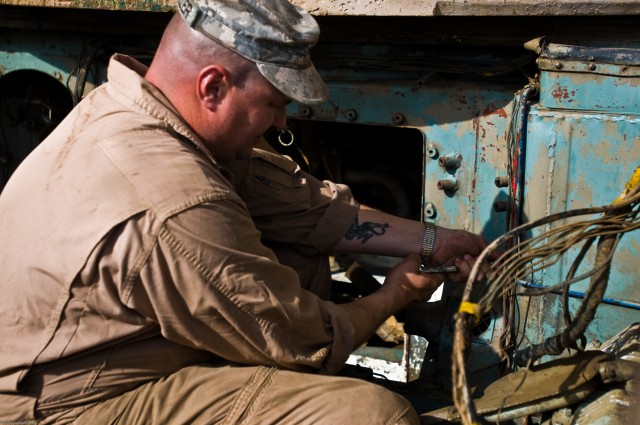
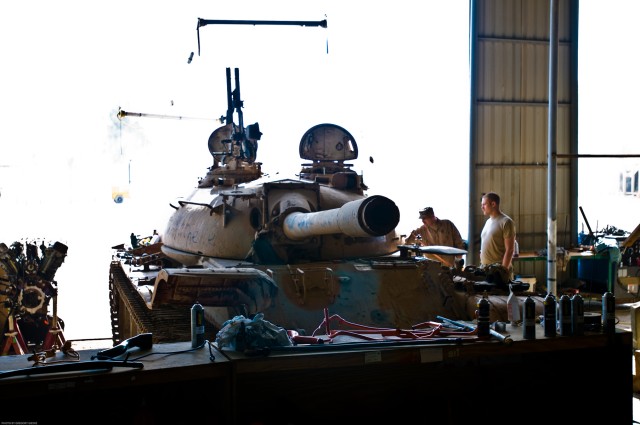
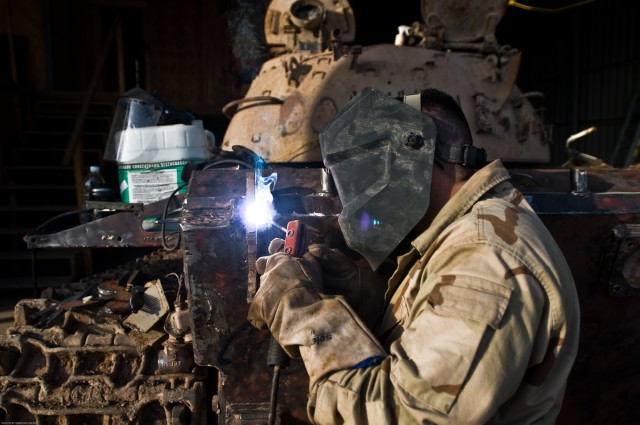
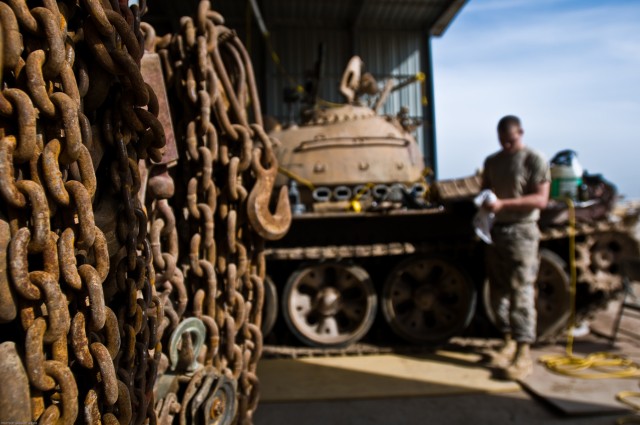
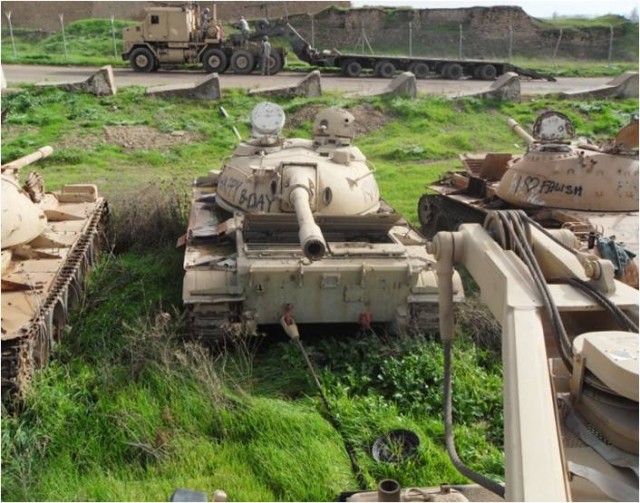





Social Sharing